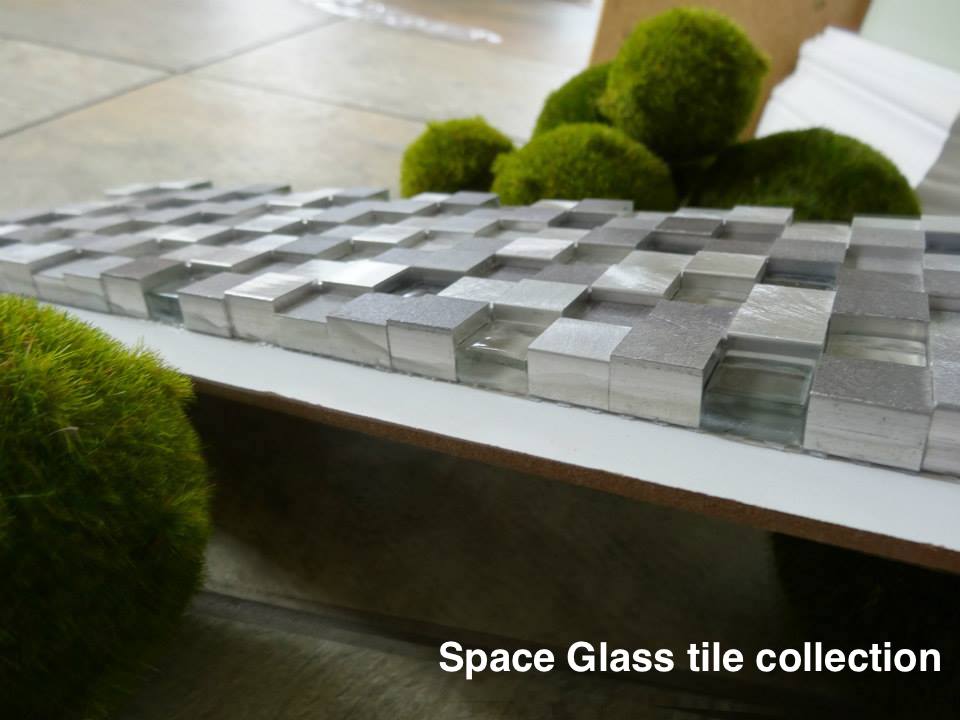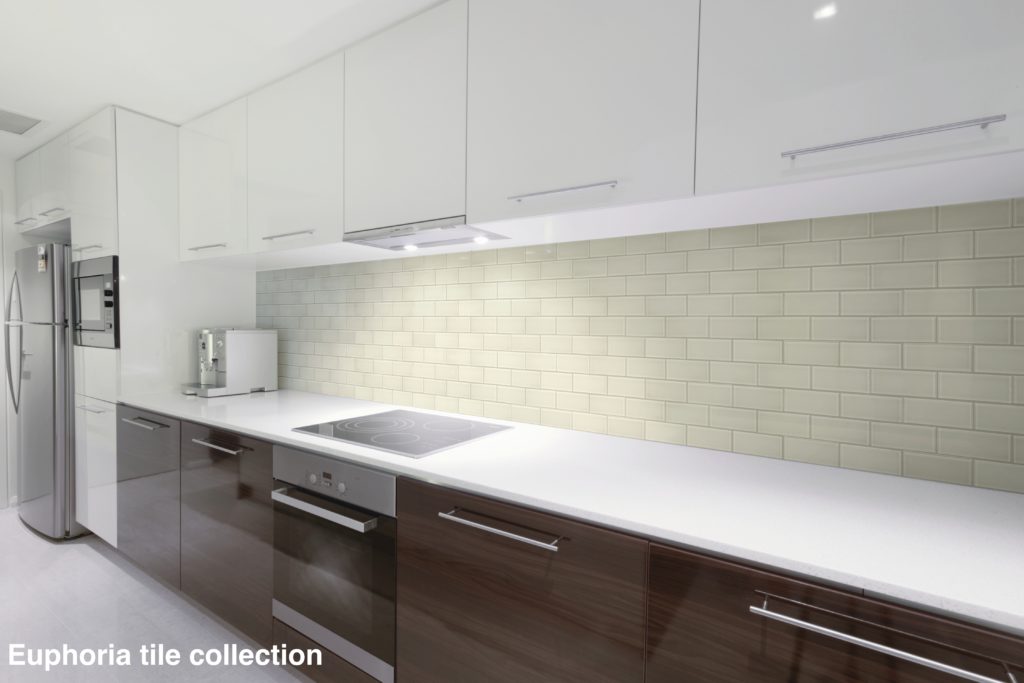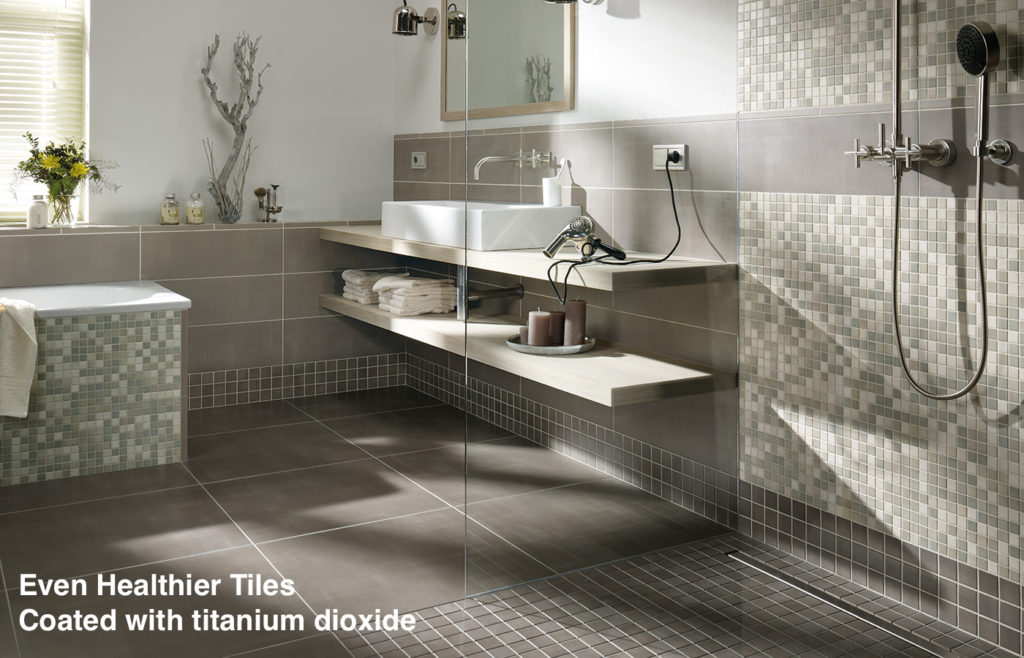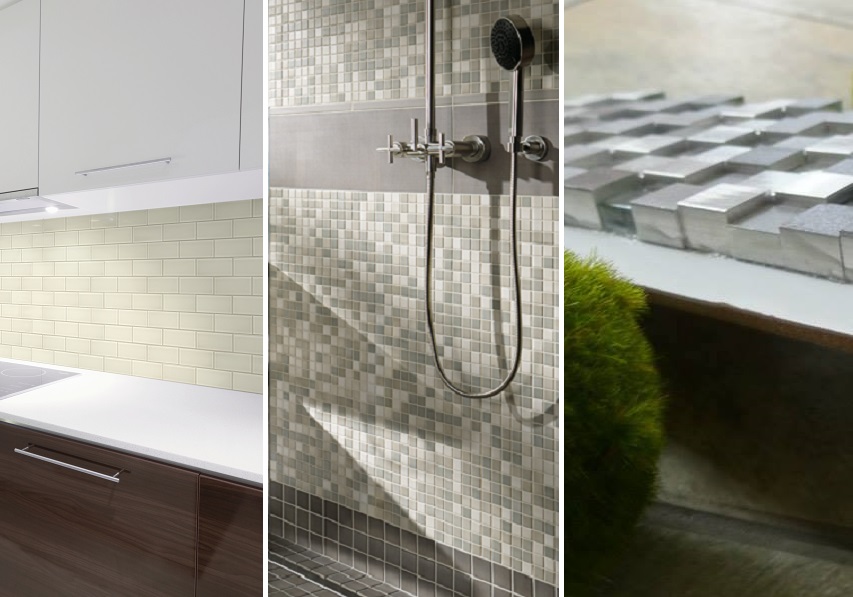Tile has always been considered an eco-friendly choice, but today’s wide range of styles and materials take green home design to the next level. If you’re looking for sustainable, eco-friendly materials for your home, ceramic, porcelain, and glass tile products are great options to consider. Not only is tile green, it offers the lowest total cost of ownership of any floor covering material.
Tiles can be used on a number of surfaces, including walls, flooring, countertops, and outside on your patio or pool area. They’re sourced from natural materials and are easy to clean and maintain, which helps to promote a healthier indoor environment. Here’s a few things to know about creating a sustainable design using tile.
Tile is Eco-Friendly
Tile has a long-life cycle and that’s beneficial to the environment because they are replaced less frequently–so less manufacturing. Tile manufacturers, over the past decade, have used more and more recycled material in their manufacturing processes. There is also tile available that has over 60 percent recycled content. Estimates are that the use of recycled material in tile manufacturing have prevented more than 200 million pounds of solid waste from ending up in landfills.

Glass Tile Helps Reduce Your Carbon Footprint
Glass tile is a trendy material due to its attractive, reflective properties and its ability to last for years. Glass is one of the most commonly recycled materials, so it usually doesn’t end up in landfills, which is an important factor to consumers who are looking to reduce their carbon footprint.
Glass tile lets in, and reflects natural light, which is a smart way to use your resources without increasing your footprint. This contributes to a sustainable design by allowing homeowners to cut down on the amount of electricity they are using.
Tile Offers Low VOCs, Better Indoor Air Quality
Our tiles are tested for VOCs and have shown to have no detectable emissions of Volatile Organic Compounds. Another concern when measuring indoor air quality is mold and mildew buildup in areas of the home with higher humidity, such as the bathrooms and basements. But because ceramic and porcelain tiles provide exceptional resistance to moisture, they resist the buildup of mold.
Harsh chemicals that emit strong odors generally aren’t required or recommended to clean most tile. Instead, warm water and a mild soap usually work. Additionally, because allergenic materials, such as dust and pollen, can be easily swept up from tile, it’s easier to prevent them from negatively affecting the interior of a home.

Even Healthier Tiles
Tiles Unlimited carries a line of tiles with a special coating (titanium dioxide) that is applied to the tile, which reacts with light to provide several healthy living benefits; an anti-bacterial effect, an air cleaning effect and are even easier to clean and can reduce maintenance costs by 50%. These tiles are typically used in commercial settings where cleanliness is a must. Think kitchens, medical offices and locker rooms. They are also very popular in homes where cleanliness is important, have tobacco smokers or occupants who suffer from allergies and asthma. Learn more about these revolutionary tiles by clicking here.

Our expert Tile Consultants stand ready to assist you in the design of your dreams. If glass tile isn’t your thing, you’ll find hundreds of tile collections on display from all over the world and at all price points. Readers of QNS.com can take up to $600 off their tile purchase by clicking here. Find out why Tiles Unlimited was voted Best Tile Store in the 2017 Best of the Boro competition.



































